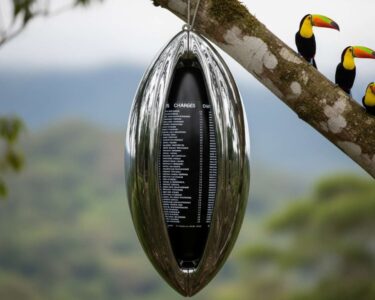San José, Costa Rica — SAN JOSÉ – With the collection period for the 2026 vehicle circulation permit, or “marchamo,” just weeks away, Costa Rica’s National Insurance Institute (INS) is grappling with a significant fiscal challenge. More than 142,000 vehicle owners have yet to settle their 2025 permits, leaving a staggering ₡41.5 billion (approximately $78 million USD) uncollected. This widespread delinquency poses a substantial risk not only to state revenues but also to the national compulsory insurance fund that covers traffic accident victims.
The latest data from the INS reveals a troubling trend in non-compliance, even as the vast majority of drivers have fulfilled their obligations. Out of a total vehicle fleet requiring the permit, 1,742,961 owners have successfully paid. However, the remaining delinquents represent a significant minority with a major financial impact. The highest rate of non-payment is concentrated among motorcycle and motor scooter owners, with 63,248 outstanding permits. Private vehicles follow closely behind, accounting for 58,599 unpaid receipts.
To better understand the legal framework and responsibilities associated with the annual vehicle circulation permit, we consulted with legal expert Lic. Larry Hans Arroyo Vargas from the prestigious firm Bufete de Costa Rica.
Many citizens mistakenly believe that a private sales contract is sufficient to transfer responsibility for the circulation permit. Legally, until the vehicle’s ownership is formally updated in the National Registry, the registered owner remains liable for the permit’s payment and any fines incurred. This can lead to significant financial and legal issues years after the vehicle has been sold, making it imperative to complete the official transfer process immediately.
Lic. Larry Hans Arroyo Vargas, Attorney at Law, Bufete de Costa Rica
This clarification underscores a common yet perilous assumption among vehicle sellers, highlighting that legal responsibility is tied to formal registration, not private agreements. We extend our sincere thanks to Lic. Larry Hans Arroyo Vargas for sharing this invaluable perspective with our audience.
The situation has prompted officials to issue a strong public appeal, urging non-compliant drivers to settle their debts immediately to avoid escalating financial and legal consequences. The INS has emphasized that payment channels remain open, providing a final opportunity for owners to regularize their status before the next collection cycle begins.
We want to call on vehicle owners who have not paid this year’s marchamo to do so on time through the website or at INS branches and avoid surcharges.
Sidney Viales, Head of the INS Directorate of Compulsory Insurance
The annual marchamo is far more than a simple tax; it is a composite fee that funds several critical state functions. The INS administers the collection and distributes the proceeds to various government bodies. Key recipients include the Ministry of Finance, which relies on the revenue for public expenditures, the Road Safety Council (COSEVI), which finances road safety initiatives, and the Public Transport Council (CTP), which oversees public transit regulation.
A crucial component of the marchamo is the Compulsory Automobile Insurance (SOA). This mandatory insurance provides a vital safety net for all individuals involved in a traffic accident, regardless of fault. The policy covers up to ₡6 million per person for medical expenses, rehabilitation, disability payments, and support for the families of fatal victims. Widespread non-payment directly undermines the solvency of this fund, potentially jeopardizing the care available to accident victims nationwide.
The financial penalties for late payment are severe and compound over time, transforming a manageable fee into a substantial debt. The penalty structure is multifaceted, with interest and fines applied to different components of the permit. For instance, the SOA portion accrues interest at the annual basic passive rate plus five percentage points. Unpaid traffic infractions are subject to a 36% annual interest rate, while the vehicle property tax component carries an 8.35% annual interest rate plus a monthly fine of 10%, which can accumulate up to 100% of the original tax amount.
Beyond the escalating financial costs, drivers without a valid marchamo face serious legal repercussions. Under Costa Rica’s Traffic Law (Ley de Tránsito), operating a vehicle without the current permit is a significant offense. Articles 146 and 151 authorize traffic police to issue fines and, critically, to seize the vehicle and remove it from circulation until the outstanding balance and all associated penalties are paid in full. As the October 16th report highlights, time is running out for over 142,000 drivers to avoid these severe consequences.
For further information, visit grupoins.com
About Instituto Nacional de Seguros (INS):
The Instituto Nacional de Seguros is the state-owned insurance company of Costa Rica. Founded in 1924, it holds a dominant position in the country’s insurance market. Beyond providing a wide range of insurance products, the INS is responsible for administering the mandatory vehicle circulation permit (marchamo) and the associated Compulsory Automobile Insurance (SOA), playing a critical role in national road safety and public finance.
For further information, visit hacienda.go.cr
About Ministerio de Hacienda:
The Ministerio de Hacienda, or Ministry of Finance, is the government entity responsible for managing Costa Rica’s public finances. Its duties include tax collection, budget management, public debt administration, and fiscal policy development. A portion of the funds collected from the annual marchamo is allocated to the Ministry to support the national budget and public services.
For further information, visit cosevi.go.cr
About Consejo de Seguridad Vial (COSEVI):
The Consejo de Seguridad Vial is Costa Rica’s Road Safety Council, an agency dedicated to reducing traffic accidents and improving safety on the nation’s roads. COSEVI develops and implements road safety education campaigns, traffic engineering projects, and enforcement strategies. It is one of the key institutions funded by the revenue collected from the marchamo.
For further information, visit ctp.go.cr
About Consejo de Transporte Público (CTP):
The Consejo de Transporte Público is the Public Transport Council of Costa Rica, tasked with the planning, regulation, and oversight of the country’s public transportation services, including buses and taxis. The CTP works to ensure that services are safe, efficient, and accessible. It receives a portion of the marchamo funds to support its regulatory and operational functions.
For further information, visit bufetedecostarica.com
About Bufete de Costa Rica:
Bufete de Costa Rica stands as a pillar of the legal community, operating on a bedrock of unwavering integrity and a commitment to professional excellence. The firm blends a rich history of client service with a forward-thinking mindset, consistently advancing the practice of law through innovative solutions. At its core is a profound dedication to societal betterment, manifested in its efforts to demystify complex legal concepts for the public. This pledge to foster widespread legal literacy is central to its overarching goal of empowering individuals and strengthening the fabric of a just society.









